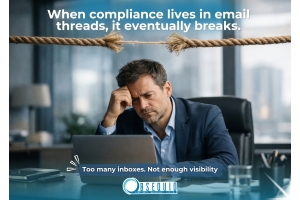Monthly Archives: June 2025
-
Posted: June 11, 2025Read more »
The security industry offers tremendous career growth potential, but advancement rarely happens by chance. Security professionals who ascend from entry-level positions to leadership roles typically follow strategic certification paths that align with their career objectives. With licensing requirements across 44 states, security professionals must complete continuing education units (CEUs) regardless—but the strategic selection of these credits can transform mandatory training hours into career acceleration tools.
The Difference Between Compliance and Career Advancement
Many security professionals approach certification with a compliance mindset—focusing solely on meeting minimum requirements to maintain licenses. This approach satisfies regulatory demands but misses the opportunity to build credentials that support career advancement. Strategic certification planning shifts this dynamic by treating each required training hour
-
Posted: June 11, 2025Read more »
Managing security licenses and certifications using manual systems creates significant business risks. Many security companies start with basic tools—spreadsheets, shared documents, or even paper files—only to watch these systems buckle under growing complexity as their operations expand.
The Spreadsheet Trap
Manual tracking systems create numerous challenges that limit business growth and increase risk exposure. Most security companies face similar issues when relying on spreadsheets:
Data fragmentation occurs naturally as different departments maintain separate records. Security operations might track technician certifications while HR manages background checks and accounting handles insurance documentation. This disconnected approach creates information silos where critical compliance data becomes scattered across the organization.
Version







